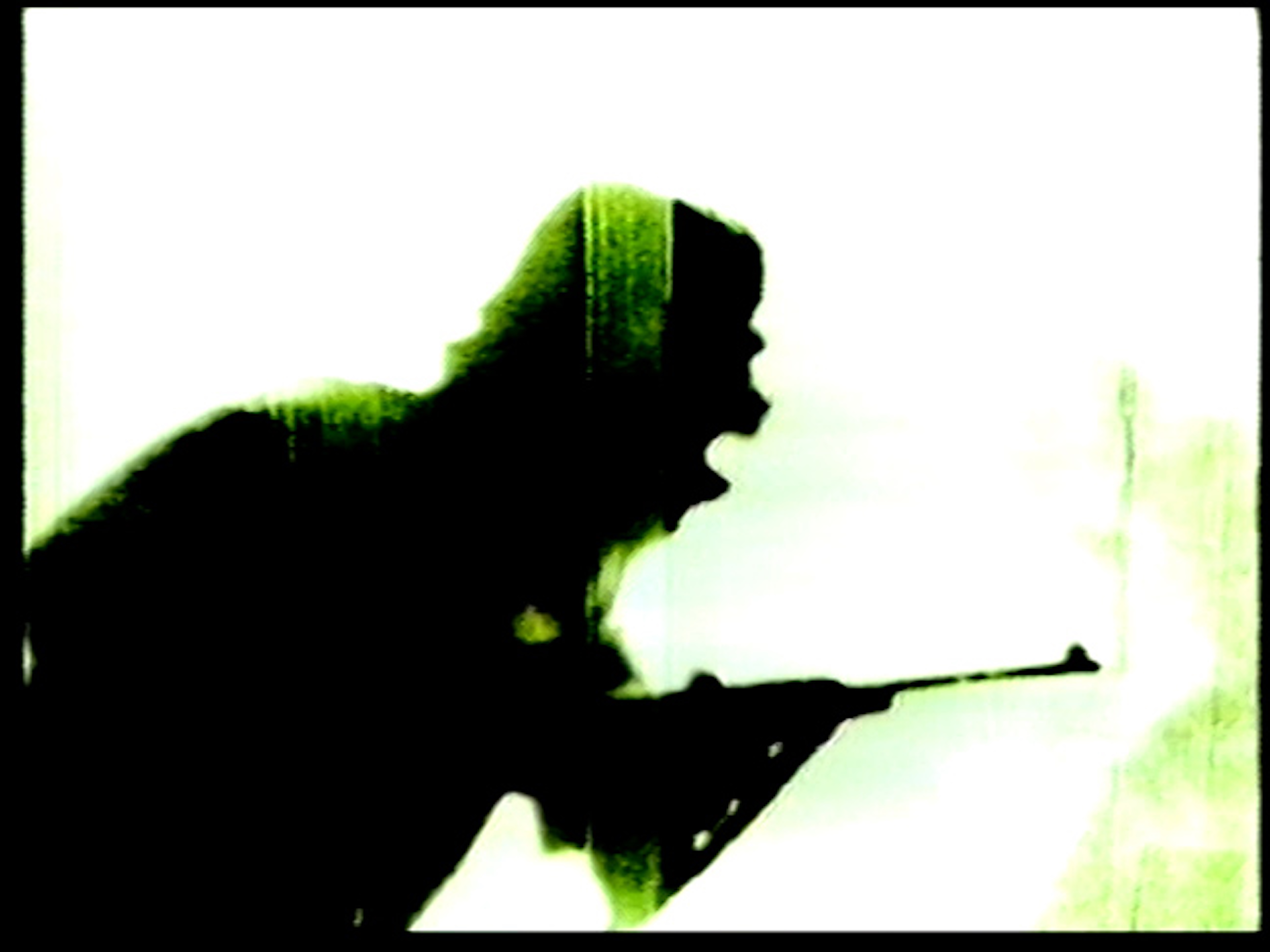L. Franklin Gilliam
L. Franklin Gilliam (b. 1967, Washington, D.C.) is a filmmaker and media artist based in New York whose creative practice is research-based and multidisciplinary. Their father is noted color field painter and lyrical abstractionist, Sam Gilliam. Their mother Dorthy Pearl Butler Gilliam is an activist and journalist who became the first Black female reporter at The Washington Post. Their parents were instrumental in exposing them to cultural production early in life.
Gilliam has exhibited at the Institute for Contemporary Art (London), Festival panafricain du cinéma et de la télévision de Ouagadougou, and New York Underground Film Festival. They have taught at the School of the Art Institute of Chicago, University of Wisconsin-Milwaukee, Vermont College of Fine Arts, and held various positions at Bard College, including director of the Integrated Arts Program. Gilliam is board president at Out in Tech, the world’s largest non-profit community of LGBTQ+ tech leaders with more than 40,000 members worldwide. They will be an artist-in-residence at the Centre for Afrofuturist Studies in Iowa in 2022. They live and work in New York.

Apeshit, L. Franklin Gilliam, USA, digital, 6 min, 1999
Interspecies battle becomes a metaphor for xenophobia, homophobia, and white supremacy while signaling the inevitable outcome: annihilation.
–The Film-Makers’ Cooperative
Apeshit commandeers an obscure object, an 8mm trailer for Battle for the Planet of the Apes (1973), and processes the footage to underscore the ideological bias.
–Berkeley Art Museum and Pacific Film Archive

Sapphire and the Slave Girl, L. Franklin Gilliam, USA, digital, 18 min, 1995
Racial politics are positioned at the core of the intrigue, the theme around which the mystery spins. And the city of Chicago provides the premises from which a theorem is proved. Action passes for fiction; architecture and streets pass for avenues of control. Things are not always what they seem, and yet?
–The Film-Makers’ Cooperative
Leah Gilliam, Sapphire and the Slave Girl, 1995, 18:20
by Anaïs Duplan
tidal networks of black people cross
the road
a Walgreens and pizzeria we follow
as they walk
time-marked
downtown area, early computers
Welcome to Chicago.
It could be
New York, Cleveland, Detroit—
in each, sections where only black people
live like this. “Sapphire,” or
the many women who represent her,
changes into a suit in an alleyway
in a blonde wig hides from sight
from behind
a wall
from TV and radio
the first black male, close up,
melted down, he is brushing his hair.
there are things that are facts
because nothing makes sense
otherwise a part of you
will always remember the
transgression, inevitable
buildings, bold movements
at a table as man asks, “is it safe?”
“Have you ever received a call on
your wrist?” She gets dressed
in bathroom——since Sapphire
came to London, she learned
to pass for white. The first Negro
of high school age to enter a school
after it had been integrated, many whites
shouting epithets she refuses to say
anything to the reporter (14:00)
title: open spaces——black woman
as white man says what’s important
is for the space to feel closed
Co-presented with Video Data Bank, School of the Art Institute of Chicago and Three Fold. Image credits: all artworks, stills, and portraits courtesy of the artist © L. Franklin Gilliam and Video Data Bank, School of the Art Institute of Chicago. Special thanks to Emily Martin and Zach Vanes.
View next: Tony Cokes, as part of Media City Film Festival: Spotlight Series